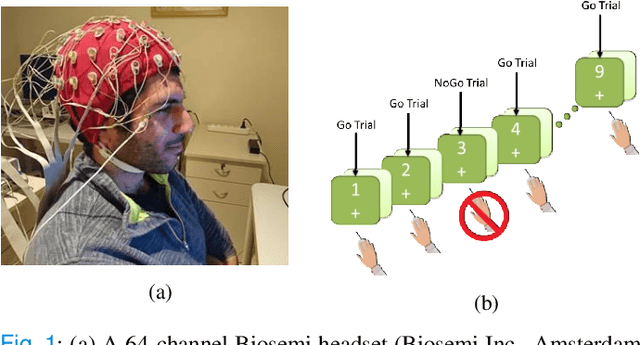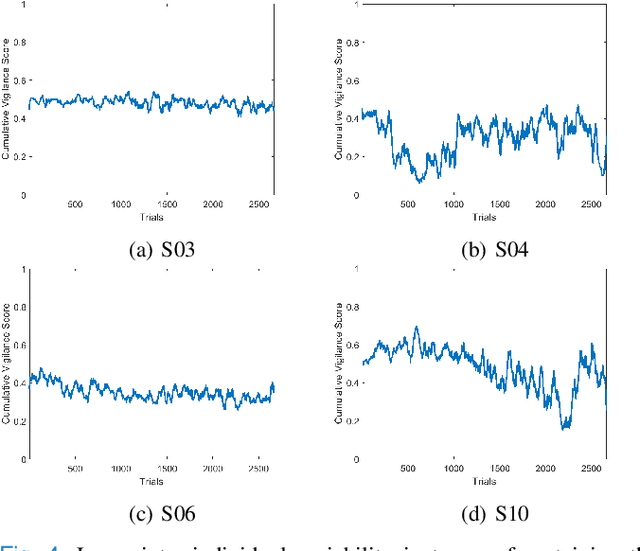Serap Aydin
Prediction of Reaction Time and Vigilance Variability from Spatiospectral Features of Resting-State EEG in a Long Sustained Attention Task
Oct 21, 2019



Abstract:Resting-state brain networks represent the intrinsic state of the brain during the majority of cognitive and sensorimotor tasks. However, no study has yet presented concise predictors of task-induced vigilance variability from spectrospatial features of the pre-task, resting-state electroencephalograms (EEG). We asked ten healthy volunteers (6 females, 4 males) to participate in 105-minute fixed-sequence-varying-duration sessions of sustained attention to response task (SART). A novel and adaptive vigilance scoring scheme was designed based on the performance and response time in consecutive trials, and demonstrated large inter-participant variability in terms of maintaining consistent tonic performance. Multiple linear regression using feature relevance analysis obtained significant predictors of the mean cumulative vigilance score (CVS), mean response time, and variabilities of these scores from the resting-state, band-power ratios of EEG signals, p<0.05. Single-layer neural networks trained with cross-validation also captured different associations for the beta sub-bands. Increase in the gamma (28-48 Hz) and upper beta ratios from the left central and temporal regions predicted slower reactions and more inconsistent vigilance as explained by the increased activation of default mode network (DMN) and differences between the high- and low-attention networks at temporal regions. Higher ratios of parietal alpha from the Brodmann's areas 18, 19, and 37 during the eyes-open states predicted slower responses but more consistent CVS and reactions associated with the superior ability in vigilance maintenance. The proposed framework and these findings on the most stable and significant attention predictors from the intrinsic EEG power ratios can be used to model attention variations during the calibration sessions of BCI applications and vigilance monitoring systems.
 Add to Chrome
Add to Chrome Add to Firefox
Add to Firefox Add to Edge
Add to Edge